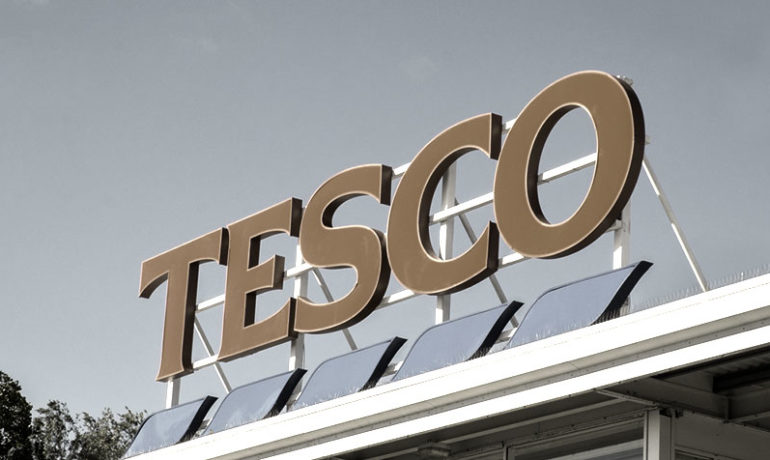The stock market put on quite the show, with the S&P 500 climbing a staggering 12.6% – the best first quarter showing since 1998. Many forecasters’ year-end targets have already been surpassed or are very close to being met, yet the rise in equity prices was not nearly as broad as one might think. Approximately one-third of the index’s gains could be explained by a mere 10 of the 500 stocks, with Apple alone accounting for nearly 13% of the gains. This seems appropriate, since the S&P 500’s first quarter earnings gains are poised to grow several percentage points, but without Apple’s help, they would actually decline a few points.
Absolute vs. Relative
During the quarter, the YCG composites averaged a gain of 6.1%. From an absolute return perspective, this is a very solid showing. However, such performance may seem a little lackluster from a relative return standpoint when taken in context with the broad market returns.
Lagging the index during frothy time periods does not come as a surprise to us. In fact, had we significantly outperformed on a relative basis, our clients might even be concerned that perhaps we changed our stripes. The difference in returns can largely be explained in our selection of stable, quality companies as opposed to more cyclical or speculative issues. It is frustrating to have a defensive posture in a stock market that goes from being overpriced to even more overpriced. But we find the alternative of participating in speculative issues is far more dangerous than leaving their fleeting returns on the table. How you get there matters in order to enjoy lasting returns.
The other major factor causing our portfolios to lag is our higher cash levels. Nothing affects your future returns more than the price you pay for your investments. So, while we dislike holding high amounts of cash, we dislike making poor investments even more. To be clear, our desired cash level is zero, but being fully invested simply for the sake of being fully invested does not appeal to us unless the risk-reward ratio is compelling. We prefer to patiently wait for bargains that provide a margin of safety.
This is where absolute managers differ from relative managers. A relative manager is more concerned about missing the upside than they are about protecting the downside. The danger is being tricked into purchasing stocks that are only relatively cheap while simultaneously absolutely expensive. This is because a decline in price would mean a permanent loss of capital, and even “losing less” is not very appealing. Thus, we remain ever vigilant in our efforts to avoid the permanent losses by searching for absolutely undervalued companies.
This point can be demonstrated by looking at stocks versus bonds. We are certainly in an unusual environment when some companies have dividend yields that exceed their corporate bond yields. When you consider that stocks have built-in inflation protection (companies can raise their prices) and have the ability to grow both their “principal” and “coupons,” on a relative basis, stocks are the clear winner between the two asset classes over the long run. However, this is meaningless if you overpay – no one would be thrilled if in the long run they “lose less” in stocks over bonds. We still contend that we are at peak operating margins, making the broad market appear cheaper than reality. Growth will now need to come in the form of true unit growth and not simply from cost cutting measures. With household incomes stagnant, this may prove difficult because we have to wonder how much longer consumer spending can remain robust. So, if we agree that in general equities are relatively a better deal than bonds, but we believe they are absolutely expensive, why do we own equities at all? Because despite the general rise in prices, we believe the individual stocks we own are still priced attractively on an absolute basis.
We find it interesting that investors tend to become absolute oriented during periods of great market decline (“Your job is to protect my capital!”), and relative oriented during major upswings (“Why is my neighbor making more than me?”). Ironically, we believe the best way to outperform on a relative basis is to remain focused on absolute returns during all times – then the relative game will take care of itself naturally.
Tesco – Every Little Helps
Tesco is a multinational grocery and merchandise retailer based in the UK. Based on revenues, Tesco ranks number three among the world’s largest grocers just behind Carrefour in France and Wal-Mart in the U.S. Tesco is also located in over a dozen other countries around Europe, Asia, and North America.
The company’s shares took a dive in January after management issued a profit warning due to their struggling UK business. Management admitted to running a little too lean, which suggests margins may be further compressed in the future. Since the UK market represents about 2/3 of Tesco’s profits, signs of margin compression for the short and middle term sounds daunting. As the Eurozone continues to struggle economically, this could negatively affect profits, especially in their non-food segments where consumers may take austere measures to rein in spending on discretionary items.
However, Tesco maintains a crucial advantage in that it is twice the size of its UK competitors, with a market leading 30% share of the grocery market, and in this business, scale is everything. In addition, Tesco has been able to partially offset the domestic margin issue with rapid growth internationally, especially in Asian countries such as Thailand, Malaysia, and South Korea. As the company’s slogan suggests, “Every little helps!”
Despite signs of future margin compression and depressed profits, Tesco’s recent market price provides a large margin of safety. At recent prices, the company was trading below 9x trailing earnings. However, as earnings decline we take comfort knowing Tesco owns about 75% of their real estate, which at recent prices means Tesco was trading below the value of the brick and mortar alone.
Tesco definitely has some headwinds to face in the future, but its recent price provides a large enough margin of safety to make a compelling case for an investment.
Concluding Remarks
In the near term, we remain cautious and defensive, particularly with such a strong recent run-up in prices. However, if you are able to look out with a long investment horizon, we are very optimistic about the prospects of our current investments. We are invested right alongside you and will continue to seek out the best risk-adjusted expected returns.
We thank you for your continued trust and loyalty.
Sincerely,
The YCG Team
Disclaimer: The specific securities identified and discussed should not be considered a recommendation to purchase or sell any particular security nor were they selected based on profitability. Rather, this commentary is presented solely for the purpose of illustrating YCG’s investment approach. These commentaries contain our views and opinions at the time such commentaries were written and are subject to change thereafter. The securities discussed do not necessarily reflect current recommendations nor do they represent an account’s entire portfolio and in the aggregate may represent only a small percentage of an account’s portfolio holdings. A complete list of all securities recommended for the immediately preceding year is available upon request. These commentaries may include “forward looking statements” which may or may not be accurate in the long-term. It should not be assumed that any of the securities transactions or holdings discussed were or will prove to be profitable. S&P stands for Standard & Poor’s. All S&P data is provided “as is.” In no event, shall S&P, its affiliates or any S&P data provider have any liability of any kind in connection with the S&P data. MSCI stands for Morgan Stanley Capital International. All MSCI data is provided “as is.” In no event, shall MSCI, its affiliates or any MSCI data provider have any liability of any kind in connection with the MSCI data. Past performance is no guarantee of future results.




